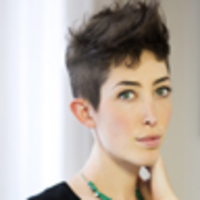You can find religion anywhere in New York if you look hard enough. Many years ago, Jeffrey Kimball strapped on a pair of binoculars and found it up in the treetops of Central Park.
Kimball is a birder. He spends as many dawn-time hours a week as possible wandering around the Ramble, the park’s wild, wooded garden—a paradise, it turns out, for a couple hundred different species of migratory bird. A couple hundred different New Yorkers, themselves a pretty transient group, visit the park year-round for the purpose of looking at them. It might not sound like captivating stuff for a documentary, but that’s the whole magic act of birding: You stare at leaves for a long time, and then suddenly a cardinal flashes into view.
Kimball’s film, Birders: The Central Park Effect, premieres July 16 on HBO. It is not about Afghanistan or puppy mills or the collapse of a Wall Street bank, all of which is enough to be thankful for.
“I didn’t set out to make an upbeat film, but people say it makes them feel good about things,” Kimball said one recent morning as we were birding together in the park. “If that’s the case, it was not my intention.”
Kimball is a genial California transplant who came east for graduate school, got into the film business, and ended up starting the music department at Miramax. This is his first feature-length documentary, and it cost him around $100,000 to make, all his, financed with savings and a generous bank loan. He seems like a person with remarkably low blood pressure, especially in light of his previous career and the financial risk he took to make a film about birds. But birding is a self-selecting pursuit in that way. It draws people who walk slowly and only speak in koans.
“Looking at birds really takes away sadness in a lot of us,” says a woman featured in his film, a breast-cancer sufferer who ushers fellow birders on ambling tours of the park. “It was one of the rare times in an adult’s life when the world suddenly seems more magical rather than less,” says the writer Jonathan Franzen, a self-proclaimed “born-again bird watcher,” of the first time he went birding.

Franzen is in thin ranks among famous people who have come out as birders. Prince Philip is perhaps the most avid, publishing Birds From Britannia in 1962 and going on to become president of the World Wildlife Fund. Margaret Atwood and her husband, Graeme Gibson, are birders, as is Damon Albarn, the frontman for Blur and Gorillaz. Last year, Steve Martin, Owen Wilson, and Jack Black starred in a little-seen film called The Big Year, a birding comedy, such as it was.
That film, based on a book by birder Mark Obmascik, was poorly received in the birding community, Kimball says, for depicting birding as a slapstick competitive sport. The plot follows the three main actors as they fight to see the most birds in a year. “My problem with it is, it wasn’t funny,” Kimball says.
Not that birders are exactly arbiters of humor, but Kimball, who says things like, “I think biodiversity is totally cool,” is in unanimous agreement with critics on the film. Most birders do keep lists of their sightings. Kimball describes his “listing” as “a bit of a New Yorker Type A thing.” But once they know you’re serious, Central Park birders are a collaborative bunch. It’s not exactly a tight-knit community. “Most know each other by face,” Kimball says. “You usually don’t know much about someone beyond that.” But they will point you in the direction of a good finch if they see one.
This is part of the unwritten birder code, which Kimball explained as he aimed my borrowed binoculars at assorted mourning doves and bluebirds. “One of the things that birders understand is that someone can be telling the most tragic story, and it’s okay to interrupt if you see a bird,” he says. “My wife doesn’t understand that.”
His wife, also a filmmaker, tolerates his birding, especially if he leaves before she and their children wake up and returns with lattes. But a birder understands that the swift flight of a rare breed trumps all. “Otherwise, a good bird can come and go without anybody noticing it,” Kimball says.
Social scientists have studied what draws a person to birding, and there are differing schools of thought. One holds that the impulse to spot birds is just another form of the impulse to hunt. Another, advocated by Cambridge psychologist Simon Baron-Cohen (cousin to actor Sacha) holds it has more to do with the impulse to “systematize.”
“It did present a lot like an addiction,” Franzen says in the film. “That sense of anxiousness, impatience, unease that can only be stilled by getting over to the park, getting the binoculars up, and seeing the first warbler of the morning.”
Whatever the impetus, this is the kind of religious devotion all birders share. No matter how many times you see a type of bird, seeing it again is still the greatest thrill.
“The day I can’t look at a cardinal,” says Kimball, “is the day I hang up my binoculars.”






